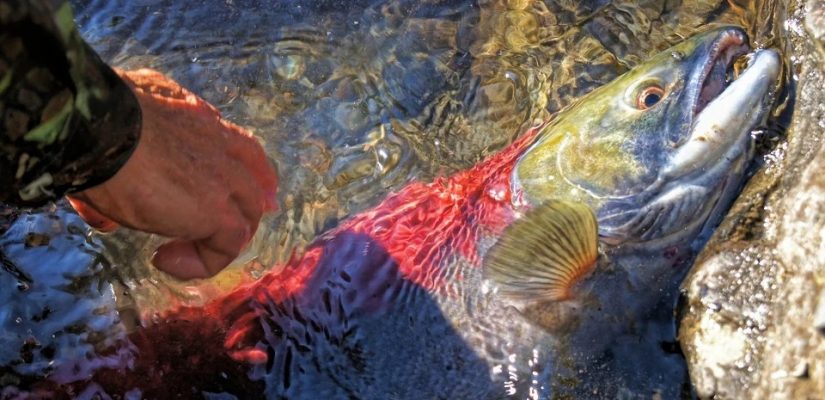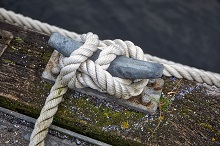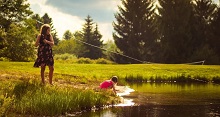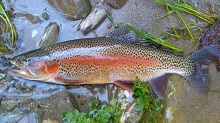
Higher Salmon Survival
Canadian Angling.com (Sep. 28, 2013) We have all experienced stress so bad that we have forgotten what we were doing or what we were going to get. What were we looking for again? Where did we put it. Where are my keys, etc. We all have experienced this in our lives. This is caused by stress. Stress also plays a role in the survival of salmon in the wild and also in aquaculture. Scientists have discovered that chronic mild stress is the root cause of the problem, a problem where we lose 20% of the salmon every year.
We all know that a bad working environment, family problems, poor sleep, has caused problems with our health and we have a reduced capacity to learn and our memory is reduced. Scientists at Uni Research AS have found that these same chronic mild stressors have caused problems with production of salmon. These stressors cause problems in their memory and their ability to adapt to new environments (learn). This applies both to the wild fisheries and to aquaculture as well.
The Integrative Fish Biology group at Uni Research AS has been experimenting and learning new methods to evaluate the fishes stresses. Scientists (Grassie et al 2013) have found that when salmon are placed in poor water that they were poor learners and adapted to the environment poorly. By identifying these stressors, they hope to improve the survival rate of the salmon. Interestingly, new research shows that by challenging the fish and placing “furniture” in their environment, increases their learning ability (Salvanes et al 2013).
In the past, it was believed that fish raised in a stress free environment survived better, but new studies show that this is not true. New research, by scientists (Korte et al., 2007), have found that too little or too much stress reduces their survival. These findings show that there must be a new strategy for raising salmon, so that they are strong enough and can adapt, and learn, to the challenges in the wild.
Wayne Sheridan for Canadian Angling.com



